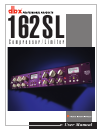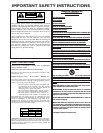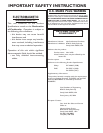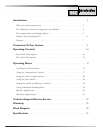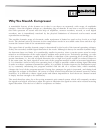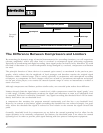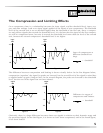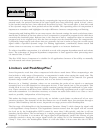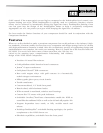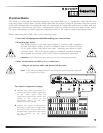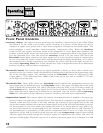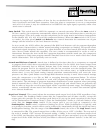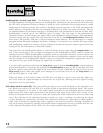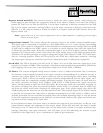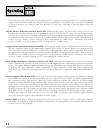
The Difference Between Compressors and Limiters
By measuring the dynamic range of musical instruments in live recording situations, you will experience
extreme amplitudes which will often lead to overload in subsequent signal processing equipment.
Especially in broadcasting and digital recording, these signal peaks can lead to heavy distortion. To avoid
this kind of distortion or, to avoid loudspeakers being damaged by overload, compressors and limiters
are used.
The principle function of these devices is automatic gain control, as mentioned in the previous para-
graphs, which reduces the the amplitude of loud passages and therefore restricts the original signal
dynamics within a desired range. This is useful, especially in conjunction with microphone recording
techniques, to compensate for level changes which are caused by inconsistent microphone techniques
on the part of the player, or to restrict the natural dynamic range of voices or instruments to achieve a
more even level.
Although compressors and limiters perform similar tasks, one essential point makes them different:
Limiters abruptly limit the signal above a certain level, while compressors control the signal “gently” over
a wide range. A limiter continuously monitors the signal and intervenes as soon as an adjustable level
is exceeded. This level is called the “threshold”. Any signal exceeding this threshold level will be imme-
diately held below the set threshold level.
A compressor also monitors the program material continuously and also has a set threshold level.
However, in contrast to the limiter, signals exceeding the threshold are not reduced abruptly, but grad-
ually. Above the threshold the signal is reduced in level relative to the amount the signal exceeds this
point.
Generally, threshold levels for compressors are set below the normal operating level to allow for the
upper dynamics to be musically compressed. For limiters, the threshold point is set above the normal
operating level in order to provide peak signal limiting and thus protects subsequent equipment.
4
Operating Level
Headroom
Clipping
Noise Floor
Useable dynamic range
Clipped signal heavily distorted
Audio levels below here are not heard, because of noise
ii
Dynamic
Range



